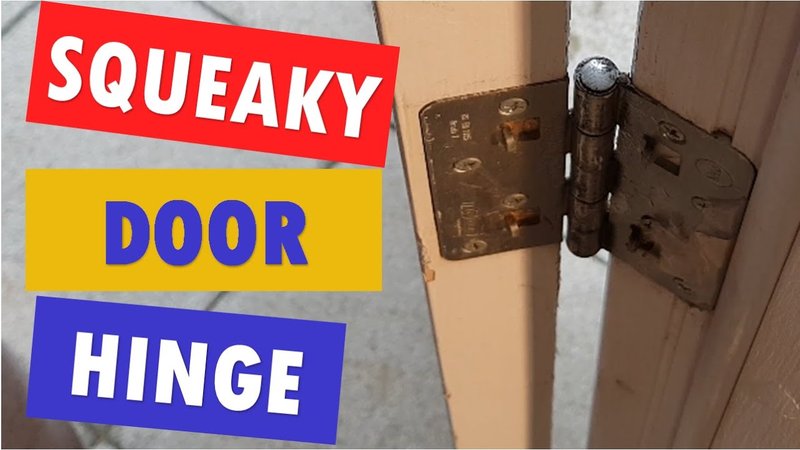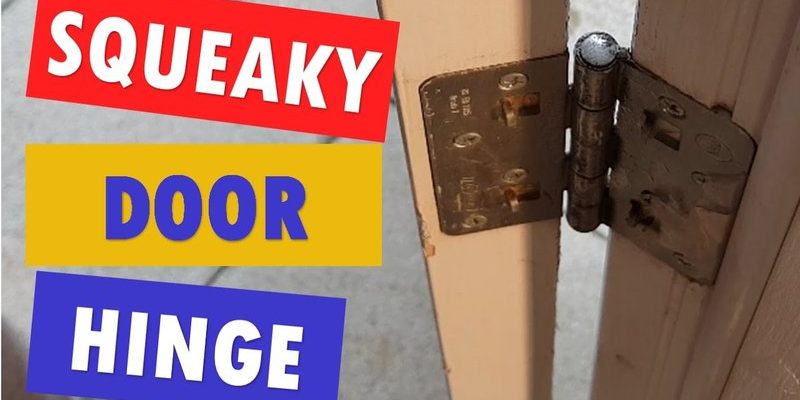
Think of new hinges like a freshly tuned violin. When they’re in perfect condition, they should work in harmony—quietly and effortlessly. However, if they start squeaking, it’s a sign that something’s off. This guide will explore practical steps to keep your new hinges operating silently, ensuring your doors function as they should.
Understanding Why Hinges Squeak
So, why do hinges squeak in the first place? It typically boils down to friction. When the metal parts of the hinge rub against each other without proper lubrication, they generate noise. This is especially common in new hinges. The factory lubricant can wear off or may not fully coat the entire hinge.
Additionally, if the hinge is misaligned, it may put extra pressure on certain parts, leading to increased friction. Picture it like trying to ride a bike uphill—you’re exerting more effort than necessary. In this case, the hinge might be struggling to perform its job, resulting in that annoying squeak.
Finally, environmental factors can also play a role. Humidity and temperature changes can affect the materials in the hinge or the door, causing them to expand or contract. If you’re wondering why your door sounds like it’s complaining, understanding the root causes can help address the issue.
Check for Proper Alignment
Ensuring that your hinges are properly aligned is one of the first steps to prevent squeaking. Misaligned hinges can cause uneven pressure, leading to unnecessary friction.
To check alignment, close the door and look closely at the space between the door and the frame. Is there a gap that seems bigger on one side? If so, the door might need adjustment. You can often resolve this by loosening the screws on the hinge, repositioning the door, and then tightening the screws again. Just be careful not to overtighten, as this could cause damage.
If you’re unsure about the alignment, consider enlisting a friend to help. Sometimes a second set of eyes can spot issues you may have missed. This simple fix can make a huge difference in reducing squeaks.
Lubricate the Hinges
Lubrication is your best friend when it comes to squeaky hinges. Proper lubrication reduces friction and helps the hinge move smoothly.
There are various types of lubricants you can use. Here are a few common options:
- WD-40: A popular choice for quick fixes, WD-40 can reduce squeaks instantly.
- Silicone Spray: This is great for long-lasting lubrication and won’t attract dust.
- Graphite Powder: Perfect for a dry option, graphite won’t gum up like grease can.
To apply the lubricant, simply spray or pour a small amount directly onto the hinge. Open and close the door several times to work it into the hinge. You might also want to wipe off any excess to keep things neat. Remember, a little goes a long way!
Use the Right Amount of Lubricant
When it comes to lubrication, less is often more. Overdoing it can lead to buildup that attracts dirt and debris, which can worsen the problem over time.
Applying too much lubricant is like trying to solve a puzzle with too many pieces—it gets messy. A few drops are usually sufficient. If you have a spray can, aim for a light mist over the hinge. After applying, open and close the door several times to ensure the lubricant spreads evenly.
If you notice any excess pooling, grab a rag and wipe it away. You want to keep the hinge moving smoothly, not turning into a sticky mess.
Regular Maintenance is Key
Preventing squeaks in your new hinges isn’t just a one-time fix; regular maintenance is crucial. Think of it like brushing your teeth—it’s essential for long-term health.
Set a reminder to check your hinges every few months. During these check-ins, look for signs of wear or dirt buildup. If you notice a squeak emerging, it’s a sign that it’s time to lubricate again.
Additionally, keep an eye on any screws—make sure they’re tight and haven’t loosened over time. A little TLC can go a long way and save you from the annoyance of squeaking doors.
Consider Upgrading Hardware
If you’ve tried everything and your new hinges are still squeaking, it might be time to consider an upgrade. Not all hinges are created equal, and some may be more prone to squeaking than others.
When shopping for new hinges, look for those designed specifically to reduce noise. For instance, some hinges come with self-lubricating features or add-ons that can minimize friction.
Researching options online or visiting a local hardware store can give you a sense of what types are available. Investing in high-quality hinges can ultimately save you from the headache of dealing with persistent squeaks.
Final Thoughts
Dealing with squeaky hinges can be frustrating, but it doesn’t have to be a permanent issue. By understanding why hinges squeak and taking preventive measures, you can enjoy smooth, silent operation. Start by checking alignment, applying the right lubricant, and keeping up with maintenance.
If all else fails, consider upgrading to higher-quality hinges. With a little effort, you can silence those squeaks and make your home a more peaceful place. Remember, it’s all about keeping things in motion without the noise!
